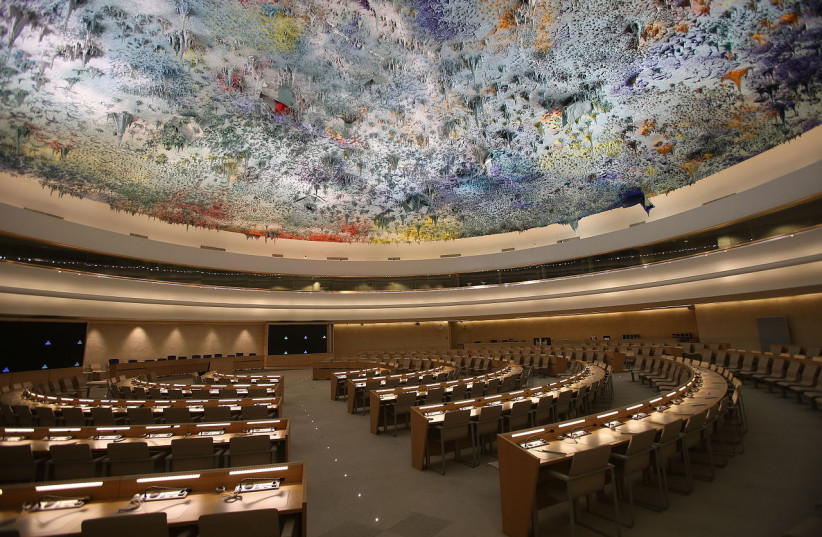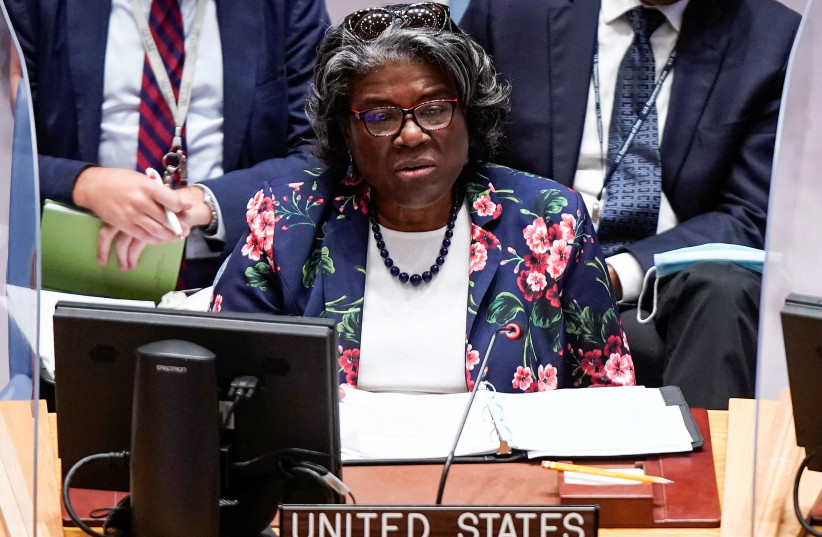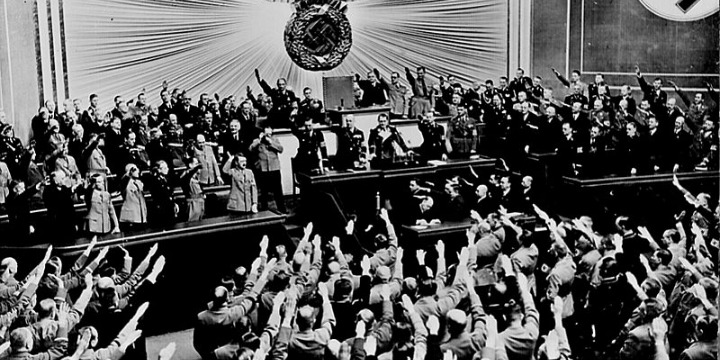 Paweł Smoleński: ‘Chłonąłem tę Babciną niechęć na cmentarzu w Zaduszki i przy wigilijnym stole, podczas rodzinnych obiadów, spacerów i wakacji albo kiedy rozmawiała z moją Mamą. Aż do pewnego listu, który przyszedł na adres Babci w końcu lat 70.’. Na zdjęciu listonosz podczas
Paweł Smoleński: ‘Chłonąłem tę Babciną niechęć na cmentarzu w Zaduszki i przy wigilijnym stole, podczas rodzinnych obiadów, spacerów i wakacji albo kiedy rozmawiała z moją Mamą. Aż do pewnego listu, który przyszedł na adres Babci w końcu lat 70.’. Na zdjęciu listonosz podczas
 Od dziecka chłonąłem niechęć do Niemca. Aż przyszedł list od pani Helgi
Od dziecka chłonąłem niechęć do Niemca. Aż przyszedł list od pani Helgi
Paweł Smoleński
Babcia spakowała manatki, a nim uciekła, usmażyła Niemcom placków ziemniaczanych, bo uważała, że nie wolno iść w nieznane z pustym brzuchem.
Niemcy zabrali jej mojego Dziadka, który wcześniej ze względu na gapiostwo uniknął poboru. Podczas ćwiczeń zepsuł armatę, a szkody miał spłacać bodaj do końca lat 50. Gapiostwo nie uchroniło Dziadka przed koncentrakiem, jak wielu innych nauczycieli uniwersyteckich. Pisał do domu listy, z musu po niemiecku, cięte nożyczkami przez esesmańską cenzurę obozu w Mauthausen. Aż nadszedł ten ostatni, wykaligrafowany innym charakterem, że już nigdy nie wróci.
Tego samego roku Babcia straciła bratową, rozstrzelaną w ruinach warszawskiego getta, a chwilę później najmłodszego brata, któremu zachciało się być podchorążym AK.
Niechęć do Niemca
Chłonąłem tę Babciną niechęć na cmentarzu w Zaduszki i przy wigilijnym stole, podczas rodzinnych obiadów, spacerów i wakacji albo kiedy rozmawiała z moją Mamą. Aż do pewnego listu, który przyszedł na adres Babci w końcu lat 70.
W jasnogranatowej kopercie z zagranicznymi znaczkami były raptem dwie białe kartki zapisane czarnym atramentem. Babcia nie rozumiała, więc przy lekturze musiała jej pomóc sąsiadka. List napisała pani Helga z miasteczka na niemieckiej prowincji. Wyjaśniła, że w jej kongregacji wierni Kościoła luterańskiego umyślili, że nie wolno im zapomnieć. Przepatrzyli część dokumentów z Mauthausen.
Kto chciał, mógł wylosować nazwisko jednego polskiego więźnia, a jeśli ten nie przeżył, odszukać jego rodzinę. Pisano do nich listy z prośbą o wybaczenie.
Kongregacja uskładała też parę groszy dla poszkodowanych. Niewiele, choć jak na biedującą PRL zebrało się na kilka emerytur; nie byli to w końcu ludzie zamożni.
Babcia i pani Helga się zakoleżankowały
Babcia (przy pomocy sąsiadki) odpisała pani Heldze wyniośle i raczej arogancko. Pytała, jak to możliwe, że po tylu latach przypomniała sobie o bracie lub kuzynie, który był w Mauthausen wachmanem, a może lekarzem mordercą. Pani Helga spokojnie odpowiedziała, że nie znała nikogo wśród załogi obozu, ale jej bliscy jednak walczyli za Hitlera i tysiącletnią Rzeszę. Nie tłumaczyła się, przepraszała: te kilkaset marek to żadne zadośćuczynienie, bo zadośćuczynić nie podobna, ale niekiedy bywa tak, że w inny sposób nie da się wyrazić żalu i poczucia winy.
I Babcię te przeprosiny, ta szczerość, że pani Helga nie umie inaczej, choć bardzo by chciała, jakoś dziwnie wzruszyły i zastanowiły.
I tak dwie starsze panie, których nie łączyły narodowość, język ani wyznanie, zaś różniły wspomnienia i wojenne losy, wymieniały się korespondencją raz na dwa-trzy miesiące. W listach z Polski do Niemiec i z Niemiec do Polski było to samo: o rodzinie, chorobach czy wnukach, którzy zdali maturę i poszli na studia. I o pomidorach hodowanych w doniczkach i o tym, czym najlepiej zmywać nagrobne pomniki, nawet symboliczne, bo innych pani Helga też nie miała pod opieką. Babcia i pani Helga się zakoleżankowały.
Buty przysłali przyzwoici ludzie
W stanie wojennym Babcia o nic nie prosiła. Lecz w listach od pani Helgi pojawiły się pytania – jak i w czym pomóc. Kongregacyjna wspólnota zaczęła zbierać dary: twardy ser i ryż, makarony, butle oleju, siatkowe torebki pomarańczy i mandarynek, niedostępne u nas lekarstwa. Na Boże Narodzenie czekoladowy mikołaj, na Wielkanoc – zając. Plus obowiązkowe przypomnienie – szło w obie strony – że już czas pikować siewki pomidorowych krzaczków.
W jednej paczce przyszły buty. Takie, do których nieudolnie aspirowały polskie podróbki, zwane wówczas adidasami. Z białej skóry, sznurowane wysoko, przeszyte czarnymi paskami, cholewka zakrywająca kostkę, jak u koszykarzy z NBA. Piękne, z wysokiej półki, o takich marzyli ubrani w dżinsy niedorośli młodzieńcy z Niemiec, a więc tym bardziej ich rówieśnicy z Polski. Babcia wyjęła buty z pudełka, odwinęła z mętnej bibuły i powiedziała: – Noś, wnusiu. Przysłali je w prezencie przyzwoici ludzie.
Placki ziemniaczane dla niemieckich żołnierzy
Zobaczmy: w krótkim tekście są aż trzy śmierci. O bliskich pani Helgi nic nie napiszę, bo nic o nich nie wiem. Ale dołóżmy jeszcze jedną. To śmierć mojego drugiego Dziadka gdzieś w mazowieckich lasach. Druga Babcia pochowała Dziadka na prawdziwym, rzymskokatolickim cmentarzu, a potem chodziła od wsi do wsi, trzymając za rękę mojego kilkuletniego Tatę, licząc na wsparcie dobrych ludzi. Nigdy się nie zawiodła. Ale też nigdy o tym nie opowiadała.
Z jednym wyjątkiem. Słychać już było sowieckie armaty, gdy w okno chałupy, gdzie ukrywała się moja Babcia, zastukał Niemiec, najpewniej oficer, bo wiedział więcej niż inni. Ostrzegł: – Uciekajcie od razu, gdy wyjdziemy z wioski. Luzują nas własowcy, nie dadzą żyć nikomu.
Babcia spakowała manatki, a nim uciekła, usmażyła Niemcom placków ziemniaczanych, bo uważała, że nie wolno iść w nieznane z pustym brzuchem.
Ci Niemcy byli tak przestraszeni, tak młodzi jak mój Dziadek.
Najpewniej wojenny postępek mojej Babci jawi się dzisiejszym oberpatriotom i ich wodzowi jako zdrada główna. Niemcom nie wolno dać nic, nigdy i w żadnych okolicznościach, wolno natomiast chcieć od nich niemożliwego.
Druga Babcia do końca życia, a było trudne i pod górkę, nie miała nikomu za złe. Nie szarpałaby kasy, nawet od Niemca, tak samo jak Babcia pierwsza, bardziej zawzięta. I nie z tego powodu, że kasa nierealna.
W chwilach samoumartwiania wywołam w pamięci posła Arkadiusza Mularczyka – rocznik ’71 – który rozprawia z bólem o II wojnie i bardzo się wtedy rumieni. Pasują do jego twarzy groźne miny prezesa Kaczyńskiego – również rocznik powojenny – który o II wojnie wie tyle samo, co o stanie wojennym; trzeba spać, by się nie narazić. Słyszę ich wrzaskliwe, głupie żądania wobec Niemiec. Co poradzę, że wolę wierzyć Babciom.
 Paweł Smoleński – Reporter, publicysta, od 1989 roku dziennikarz “Gazety Wyborczej”.
Paweł Smoleński – Reporter, publicysta, od 1989 roku dziennikarz “Gazety Wyborczej”.
Zawartość publikowanych artykułów i materiałów nie reprezentuje poglądów ani opinii Reunion’68,
ani też webmastera Blogu Reunion’68, chyba ze jest to wyraźnie zaznaczone.
Twoje uwagi, linki, własne artykuły lub wiadomości prześlij na adres:
webmaster@reunion68.com





